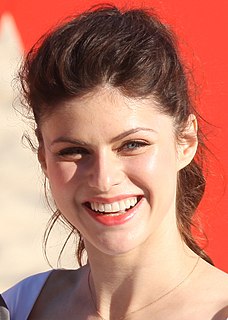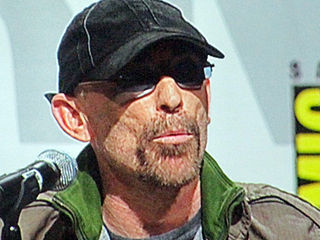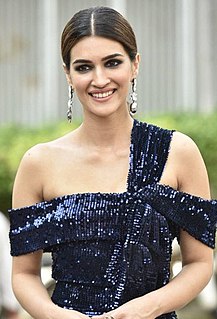A Quote by Alexandra Daddario
There's a method to the madness in filmmaking, where everything's very specifically laid out, the shots and what they need - but there also can be a freedom to allowing the actors to find genuine moments.
Related Quotes
Having been an actor, I always want to leave room for the actors to find their comfort zone, so I don't like to be too rigid in how I plan my shots. It's different if you have weeks to rehearse and you can rehearse on your sets or in your locations and you can plan that out with your actors, but in modern independent filmmaking, you don't really have that time. You have to have a certain level of improvisation.
The work of cultivating experiences called "peak experiences" or "mystic moments" or "breakthroughs" until they become more accessible is part of the essential nature of genuine spiritual discipline. These are moments, at the very least, of approaching the experiential verification that there does exist something Higher within and perhaps also outside of ourselves. Moments at the very least of approaching what the religions call God.
Filmmaking, at the end of the day, is really - in addition to the story and all of the equipment and the actors, it's really about time management. And so the smartest filmmakers are the ones who sort of pre-visualize the film in their head and are literally shooting the shots they need to cut the story together.
Stockholm is unique in that it's built on islands and surrounded by water, so you get this enormous sense of freedom. It's got everything you could possibly need - everything New York or London has but without all the people and traffic. It's also become a very creative city, not only for music but also for fashion and computer games.
No one is really a method actor, everyone has their way of going about it, preparing for it, but method is preparation, it's what you do to prepare. So my method is to read the script. Some actors' method is to read the script a hundred times and in the doing of it, to immerse themselves in as much of the reality as possible. Me, I believe strictly in acting. If I am out of breath, I'm out of breath. I ain't running nowhere.
I don't know what I could say specifically, except that everything I've learned as a kid of course must somehow play into what I do now. I think when everything kind of drifted away, I had to go out into the world and learn how to emotionally be okay with all that, which to me was a decades-long process. But also I happened to find my way in life, to find a living, to figure out what I wanted to be when I grow up. I think all of that now probably helps me. It probably gives me more life experience to draw from.
My true role is to get actors to understand what the camera is doing and what my intent is so they don't waste their good stuff on over-the-shoulder shots and wide shots. They need to know when we're going in to get something important, so they know to really go for it. No human being can give you 1,000 percent on every single take or shot, so you need to let them know what you're heading for. It's important that the actors know they're being looked after and being recorded in a way so they can do their best.
Sudheer Varma is very easy going and very confident director. He knows exactly what he wants. He has a very good vision and knows how many shots he wants for a scene. He is super fast. He gives freedom for actors to try different things. The atmosphere on the sets was never serious. We had great fun working together.




































